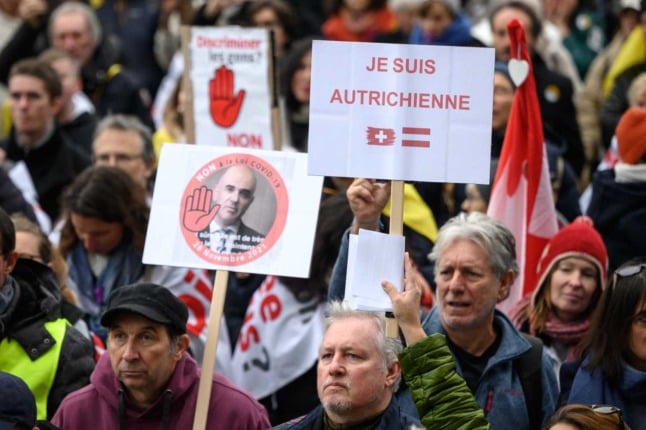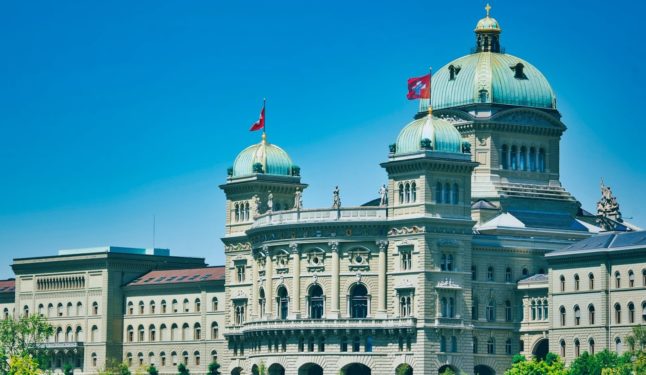Swiss authorities are “worried” that Sunday’s referendum on the country’s Covid measures could become a flashpoint for violence.
The mood has become increasingly tense over the past few weeks, particularly among opponents to the measures, which includes the country’s controversial Covid certificate.
Neighbouring Austria and the Netherlands have seen violent protests in recent days, while it was only back in September when Switzerland’s federal palace was attacked.
Several politicians, including Swiss Health Minister Alain Berset, have received death threats in the lead up to the vote and are currently under increased police protection.
Bern Security Director Reto Nause said the federal city is preparing for the worst.
“We are getting ready and we are worried” Nause told Swiss news outlet 20 Minutes.
“What if the opponents of the Covid law do not accept the democratic result?”
Nause said he saw parallels between the Covid sceptic movement and supporters of former US President Donald Trump, who stormed the US Capitol building in January leading to several deaths including a member of the police force.
Recent polling indicates the opponents’ challenge to the law will be set to fail by a two-thirds majority.
READ MORE: : Covid-19 law looks set to win approval of Swiss voters
Bern police have also indicated they are ready for potentially violent riots on the day.
“We are aware that the vote is an emotional issue, which – regardless of the result – can trigger appropriate reactions,” police spokesperson Patrick Jean said.
“Based on this assessment, appropriate measures are taken to ensure public order and security.”
While Covid sceptics have held regular rallies since the onset of the pandemic, these have largely been non-violent and have led to few arrests.
Crime scientist Dirk Baier said he did not expect a violent reaction regardless of the election result, largely because Switzerland has a history of accepting referendum results.
Given that the opponents have consistently polled much lower than those in favour of the measures, the opponents are correspondingly less likely to cause violence as they are already the underdogs, Baier said.
“An aggressive mood often arises when people are surprised.”



 Please whitelist us to continue reading.
Please whitelist us to continue reading.
Member comments